A feast amid a talent shortage
Inflation and staff shortages reduce the profitability of restaurants
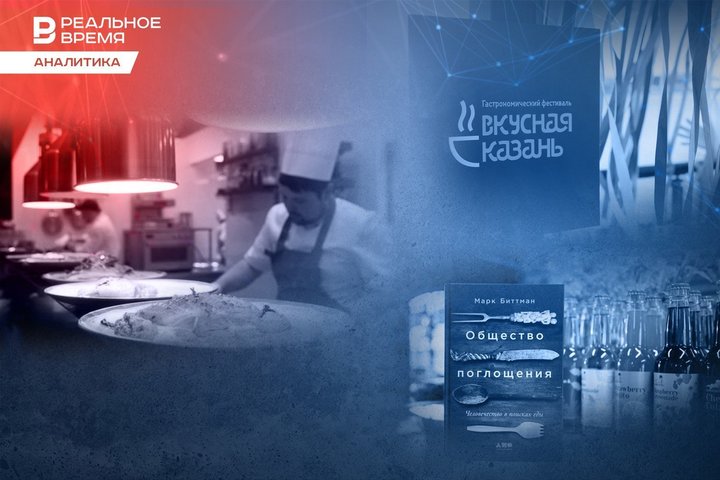
The turnover of public catering in Tatarstan increased by 8.2% in the first 9 months of 2024, to 57.9 billion rubles. This is a good indicator, but the market grew better a year earlier — by 18.1%. Inflation, staff shortages, tightening of the tax burden and bureaucracy lead to that the profitability of the business is declining. It has become more difficult to work, but the average check is growing, restaurateurs say. What factors influence the industry today and with what expectations will catering meet the year 2025 — in the review of the analytical service of Realnoe Vremya.
Growth dynamics of food service industry in Tatarstan began to slow down
In the three quarters of 2024, the turnover of public catering in Tatarstan reached 57.9 billion rubles, an increase of 8.2% in comparable prices compared to the same period last year. In 9 months of 2023, the turnover of catering in Tatarstan increased by 18.1% compared to last year, to 48.8 billion rubles. Judging by the statistics of Tatarstan State Statistics Service, the dynamics of catering development in the republic is slowing down. The number of catering establishments in the first 9 months of 2024 decreased from 5,614 to 5,593.
In recent years, despite economic difficulties, sanctions and staff shortages, the catering industry in Russia has been growing. According to BusinesStat estimates, in 2021-2023, the turnover of catering increased by 47%: from 1.93 to 2.83 trillion rubles.
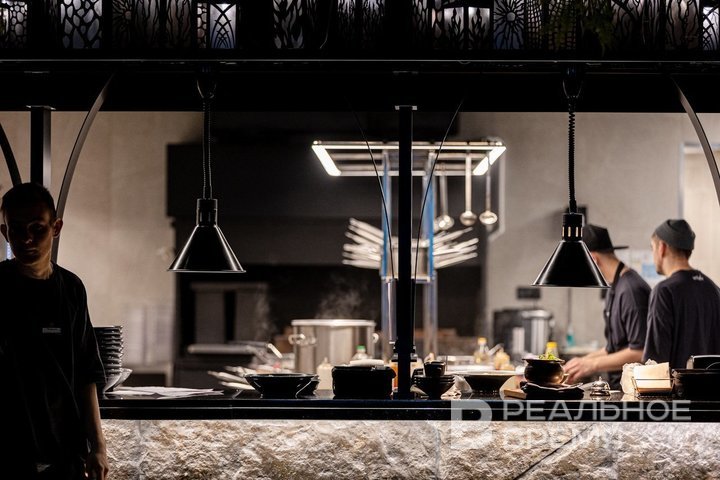
In 2022, the catering market in Russia, as well as the entire economy of the country, underwent a transformation. Large restaurant chains with foreign participation have changed owners to Russian ones. Some of the network power points were idle waiting for rebranding. Fast food operators who decided to continue working were able to attract new customers and improve their performance. Low— and middle-income consumers were more likely to adopt a saving behaviour model. As a result, the demand for catering services shifted to segments with a lower average bill.
In 2023, despite the negative impact of sanctions and the pessimistic expectations of market operators, the revenue of establishments was also growing. One of the drivers was an increase in the volume of domestic tourism against the background of restrictions on entry into European countries, as well as the legalisation of the industry.
According to Infoline, the industry's turnover in 2023 increased by 15%, to 4-4.2 trillion rubles. The audience of the Russian restaurant market has grown by 10% over the year, and the average receipt has increased by 5%. Over the past four years, its amount has increased by 40% and reached 500 rubles in 2023. The number of establishments opening in 2023 was by 11.7% more than a year earlier.
In January — September 2024, the number of checks in restaurants and bars across Russia increased by 9% year-on-year, Check Index service calculated. In the whole country, the dynamics turned out to be higher than in Moscow, where this indicator increased by 2%, and in St. Petersburg, where, on the contrary, there was a decrease of 1%. According to Check Index, a similar trend is observed in the segment of cafes and canteens: throughout Russia, traffic increased by 6%, in Moscow and St. Petersburg — by 3% and 2%, respectively. In fast food establishments, the trend is less pronounced. Across Russia, the attendance of such points increased by 7%, in Moscow — by 5%, in St. Petersburg — by 6%.
The personnel issue remains a serious challenge for the industry. In January — September 2024, the number of vacancies in the catering sector increased by 28% year-on-year, according to a joint study by the HeadHunter job search portal and Kroshk Kartoshka network. The demand for cleaners increased the most — by 41%, couriers — by 31%, waiters and bartenders — by 30%, managers — by 22% and accountants — by 29%. Now, according to analysts, the industry lacks about 30,000 employees.
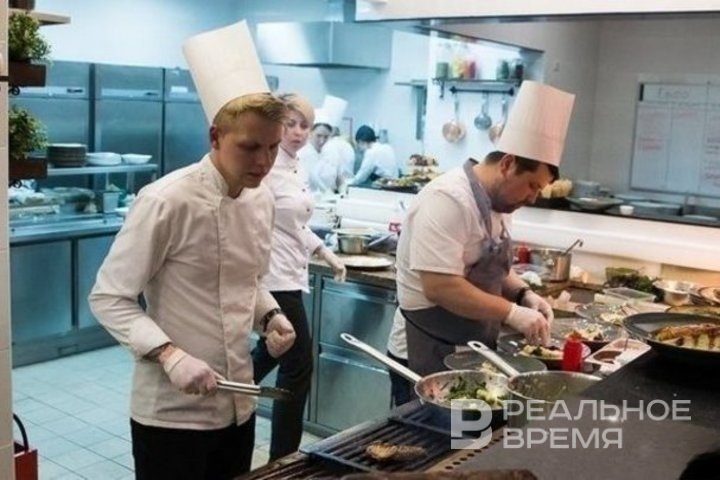
Profitability of the business is declining
“The year 2024 is marked by greater stability. The turnover of the companies was within the framework of financial planning or slightly higher," Galina Sharafutdinova, the director general of the Association of Restaurateurs and Hoteliers of Tatarstan, told Realnoe Vremya. “There are low and high seasons in the industry every year. They meet expectations, and therefore, with proper planning, they do not pose a threat. The summer of 2024 was very active. A large influx of tourists who are ready to get acquainted with the gastronomy of Tatarstan has allowed entrepreneurs to create a “safety cushion” for the autumn-winter period.
In general, the catering market, according to Sharafutdinova, has learned to adapt to changes in the external environment, consumer needs and preferences. The trend of eating out continues to show its resilience. In 2024, the average consumer's bill increased by an average of 10%, partly due to higher prices. Breakfast traffic increased by an average of 15%. The profitability of the business decreased by 2-5%.

There is a demand for Korean cuisine among the younger generation, and it will grow in the coming year. The market for fast food establishments will also grow.
In 2025, Sharafutdinova predicts an increase in tourist flow by 10-15%. This is due to the great attention of the world community to Kazan after the BRICS summit. A large influx of tourists is expected from China.
“Changes in tax legislation may affect some enterprises. An increase in the tax burden can occur from 20% to 30%. This is a “red” zone for business. Everyone is looking for their own economic model to keep the business going. And we hope that the gastronomic map of Kazan will not lose its bright, interesting projects," she concluded.
Restaurateurs complain about bureaucracy
“The year 2024 really turned out to be more difficult than 2023. The catering was influenced by an increase in the bureaucratic burden, the moments with the Unified State Register of Medical Sciences and taking into account the portion of alcohol created additional bureaucratic barriers for restaurants," said Mikhail Sharipov, the chairman of the Board of the Association of Restaurateurs and Hoteliers of the Republic of Tatarstan, co-owner of Skazka family restaurant. “We have to buy new software that is not ready and does not work yet. And when we come across such unfinished moments, it leads to additional stressful situations that prevent businessmen from developing.

The second point that has a serious impact on the industry is the tax burden, which is increasing. “We are grateful that the state hears us and removes some harsh moments, which allows us to develop further and does not completely kill the industry. But at the same time, there is an increase in the workload," he complained.
The third factor is the shortage of personnel. “It is escalating for objective reasons. The market is growing, federal players are coming in. In addition, there is a shortage due to related industries and the SVO. But I would not put personnel shortag in the first place. Still, I think that our restaurant industry is very well developed, and now it is one of the strongest in the world. We are already starting to build strong HR brands, thus coping with this catastrophic situation. And compared to other industries, the restaurant industry can still be an example of how to act in such a situation," the restaurateur notes.
Global price growth also affects the industry. “The achieved market growth is actually turning into idle work, because the real net profit is declining. Let it be bigger in numbers, but in fact, inflation eats everything up," says Mikhail Sharipov.
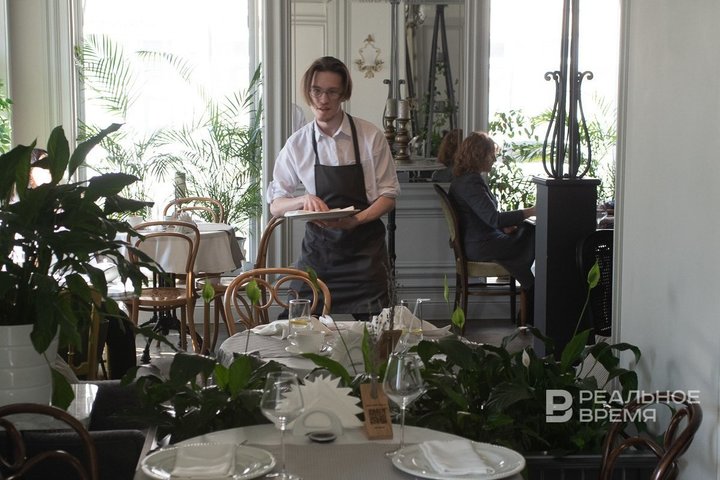
“We believe and hope that we will continue our dialogue with government agencies so that digitalisation does not escalate into bureaucratisation. We believe that we are being heard, that a dialogue is being conducted with us, we appreciate it and will continue to work in this direction," he says about the goals for 2025. “Despite everything, the forecasts are optimistic. We, businessmen, will work, try, and do. We really appreciate our region, and we are very grateful to the guests who come to our restaurants and choose local Tatarstan restaurants. In turn, we in the Association will try to do everything to ensure that these local restaurants are of high quality.
The market needs to adapt to new conditions
“The year 2024 really turned out to be more difficult. Although the market continues to grow, the growth rate has slowed by almost half compared to last year. This indicates a gradual saturation of the market and the need to adapt to new conditions. Rising costs for raw materials, utilities and staff also complicate the work of restaurateurs," says Rimma Garipova, the director general of Vartazia restaurant.
Among the key factors affecting catering today, she highlighted the increase in the cost of products and logistics: “Suppliers are increasing prices, which inevitably affects restaurant margins.” In addition, consumer behaviour is also changing — people have become more attentive to expenses, which leads to a reduction in the frequency of visits to restaurants. Inflation and declining incomes are forcing guests to look for more affordable formats.
The average check, according to Rimma Garipova's observations, increased by 7-10% due to an increase in the cost of raw materials, but this does not always compensate for the decrease in the flow of guests.

In 2025, the growth of catering turnover may slow down to 5-6%, taking into account the economic situation and the expected increase in the tax burden. “This will force restaurateurs to look for new ways to optimise costs, up to reducing staff or changing the menu," Garipova does not exclude. “Nevertheless, I remain optimistic: guests always appreciate the high level of service and unique concepts. Therefore, those who can maintain quality and offer an interesting product will remain in demand.”
In the industry as a whole, it became more difficult in 2024 due to staff shortages, says Mikhail Klopoukh, the founder of the federal chain of restaurants Po Chesnoku.

At the same time, the businessman is optimistic about 2025. “As we develop and improve every year, this gives us more confidence in a positive outlook for next year," said the founder of the restaurant chain.

“The revenue of our projects grew in 2024, including due to inflation. We also had to raise prices because everything was growing," he explains.
Among the factors that affect the catering sector today, Kirillov singled out the personnel shortage, which has worsened due to the situation with migrants. “It is necessary to raise the prestige of the profession of chefs and waiters, the whole industry needs to work on this comprehensively," he believes.
In addition, starting in 2025, the industry will also be hit by tax reform. “Restaurateurs will have to work in new conditions, and this will inevitably affect prices," he is sure. “This is a very painful and urgent issue for everyone today.”
“Rental rates are growing at a staggering pace. It is becoming more expensive to launch new projects. We are now opening another project. Lease negotiations began last winter, and when they entered the final phase in the spring, the rental price managed to increase by one and a half times," Kirillov said.
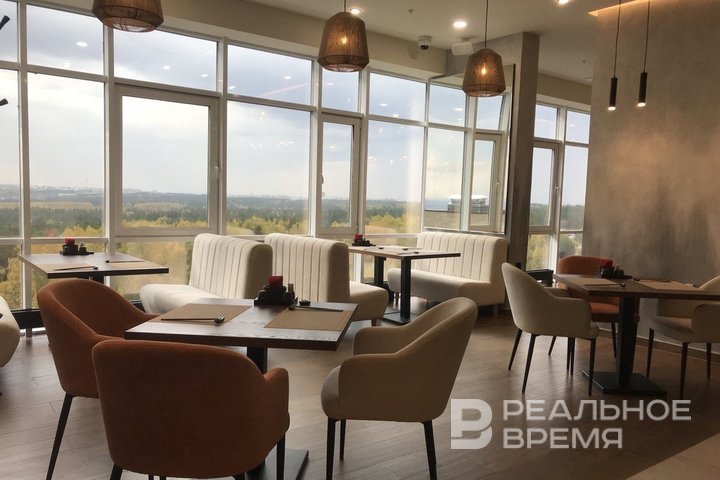
Irina Bilalova, Director of Cheese Factory Chiseria Vostochny PLC, also noted that 2024 was no worse for them than last year. Among the negative factors, she highlighted the increase in wage rates and the lack of personnel, as well as an increase in prices for food and alcohol.
Strangely enough, the crisis in the tourism sector helps the restaurant industry.
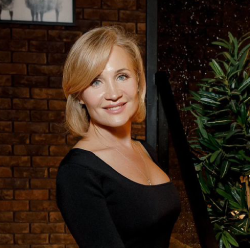
She is also optimistic about 2025: “I believe that my generation has gone through so many economic, tax and political changes that we will adjust to the new ones.”